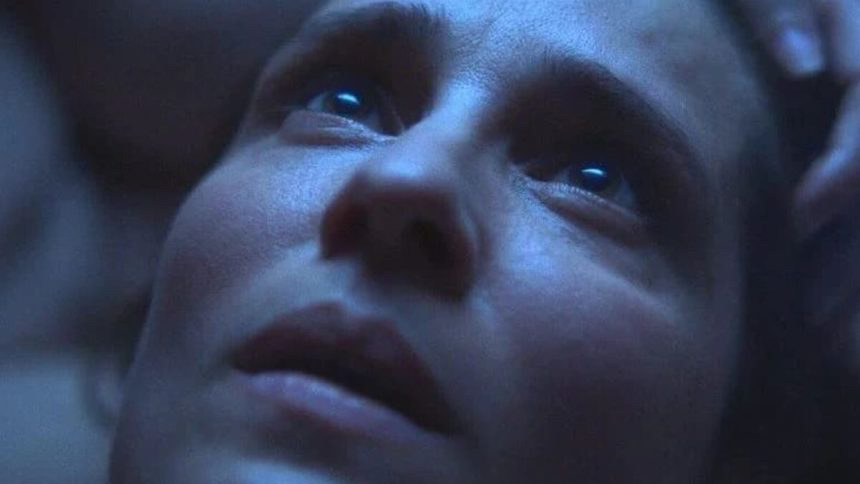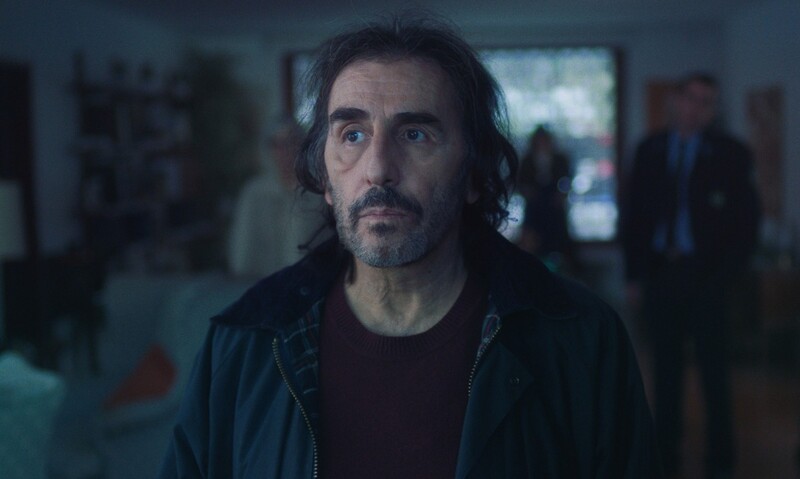Berlinale 2024 Review: ARCADIA Pushes Marital Drama to Mystical Realities
Greek director Yorgos Zois, alongside leading actress Angeliki Papoulia, delves into a exploration of love, loss, and ethereal spaces.

Greek filmmaker Yorgos Zois explores themes of love and loss across both real and imaginary realms in Arcadia, his second feature.
The film marks a departure from his debut, Intervention, an experimental work that drew upon the story of Orestes. With Arcadia, Zois transitions to a marital drama, employing his experimental narrative techniques in service of a story that aims to engage a broader audience.
Arcadia is set in an abandoned seaside resort during an autumn marked by strong winds. The story follows Katerina (Angeliki Papoulia), a neurologist, and Yannis (Vangelis Mourikis), her husband and a once-esteemed doctor, as they deal with the consequences of a tragic accident. Their journey to a small-town hospital, characterized by a silent car ride filled with a sense of impending doom, is to identify a victim in the local morgue, where Katerina's deepest fears are confirmed.
In collaboration with co-writer Konstantina Kotzamani, Zois initially presents Arcadia as a drama centered around the investigation of a car accident near a scenic dam, adopting the structure of a procedural drama. As the story unfolds at a measured pace, the director gradually exposes a growing divide between the central couple, leading them onto diverging paths yet keeping them within each other's sphere of influence. While Yannis withdraws into the solitude of an empty house, Katerina begins to frequent a rustic beach bar named Arcadia, where she seeks solace that blends corporeality with emotional depth and memories.
The film, while ostensibly a drama about marital crisis, delicately unfurls its narrative layers, revealing a complex interplay of realities. Katerina and Yannis find themselves living in separate worlds, yet they maintain an intangible connection. Themes of love, grief, loss, acceptance, and the increasingly indistinct boundaries between reality and ethereal become central to Zois' nuanced and methodically crafted genre-twisting.
Echoing the style of his debut film Intervention, Zois adopts a theatrical approach in Arcadia by introducing a variety of secondary characters who frequent the Arcadia bar. Initially anonymous and seemingly disconnected from the main narrative, these characters gradually reveal their connections to each other and to Katerina, the film's protagonist, as she begins to understand her place among them.
The interactions among this diverse group primarily occur within the confines of the bar, transforming these gatherings into intense, huis clos imbued with a sense of limbo. Zois treats these scenes as a chamber piece, where the drama extends beyond the physical location of the bar, suggesting broader thematic implications. Zois operates in a rather Shyamalan-esque mode, trading the metatextual approach of his debut for a metaphysical one.
Arcadia derives its name from the concept of a pastoral idyll, famously associated with the phrase "Et in Arcadia ego," which alludes to the presence of death even in a utopian paradise. This idea serves as the central theme and conflict of the film.
In their narrative construction, Zois and Kotzamani opt for a minimalist approach, utilizing a limited range of elements. On its surface, the film employs familiar motifs from folklore or genre traditions, which could be perceived as verging on the cliché.
However, the method and style chosen by the director to develop this multi-layered narrative — emphasizing atmosphere, the journey towards redemption rather than just plot twists — elevate the film beyond a conventional or tired storyline.
Zois' distinctive directorial signature is apparent in the gradual escalation of the plot, the strategic arrangement of the protagonists' intersecting lives, and an inclination for challenging and overturning genre conventions. This is complemented by Konstantinos Koukoulios' cinematography, which is notably intimate, enhancing the film's intensity. Through Arcadia, Zois persistently examines the themes of love and loss, as well as the transitional zones bridging the real and the imagined.
The film is anchored by strong performances by the leading duo. Angeliki Papoulia, the dame of indie and experimental arthouse, adds a unique depth to her portrayal of Katerina, a character navigating unfamiliar emotional and supernatural realms.
Vangelis Mourikis, as a disgraced doctor whose backstory adds another layer to the narrative, maintains a state of melancholy stagnation until the film's climax. Mourikis, a Greek Al Pacino, initially embodies a machismo that gradually breaks down by the film's end.
Zois engages with compelling themes and ideas throughout Arcadia, but the final act shifts towards a more conventional narrative of melodrama and redemption. This transition sees Mourikis’ character reaching a resolution that aligns with audience expectations, providing a somewhat predictable but emotionally resonant conclusion. Zois thus offers a denouement that, while seemingly cathartic, is designed to satisfy a broad audience base and a counterpoint to the erotically charged middle part.
The film enjoys its world premiere at the Berlinale. Visit the official festival page for more information.








